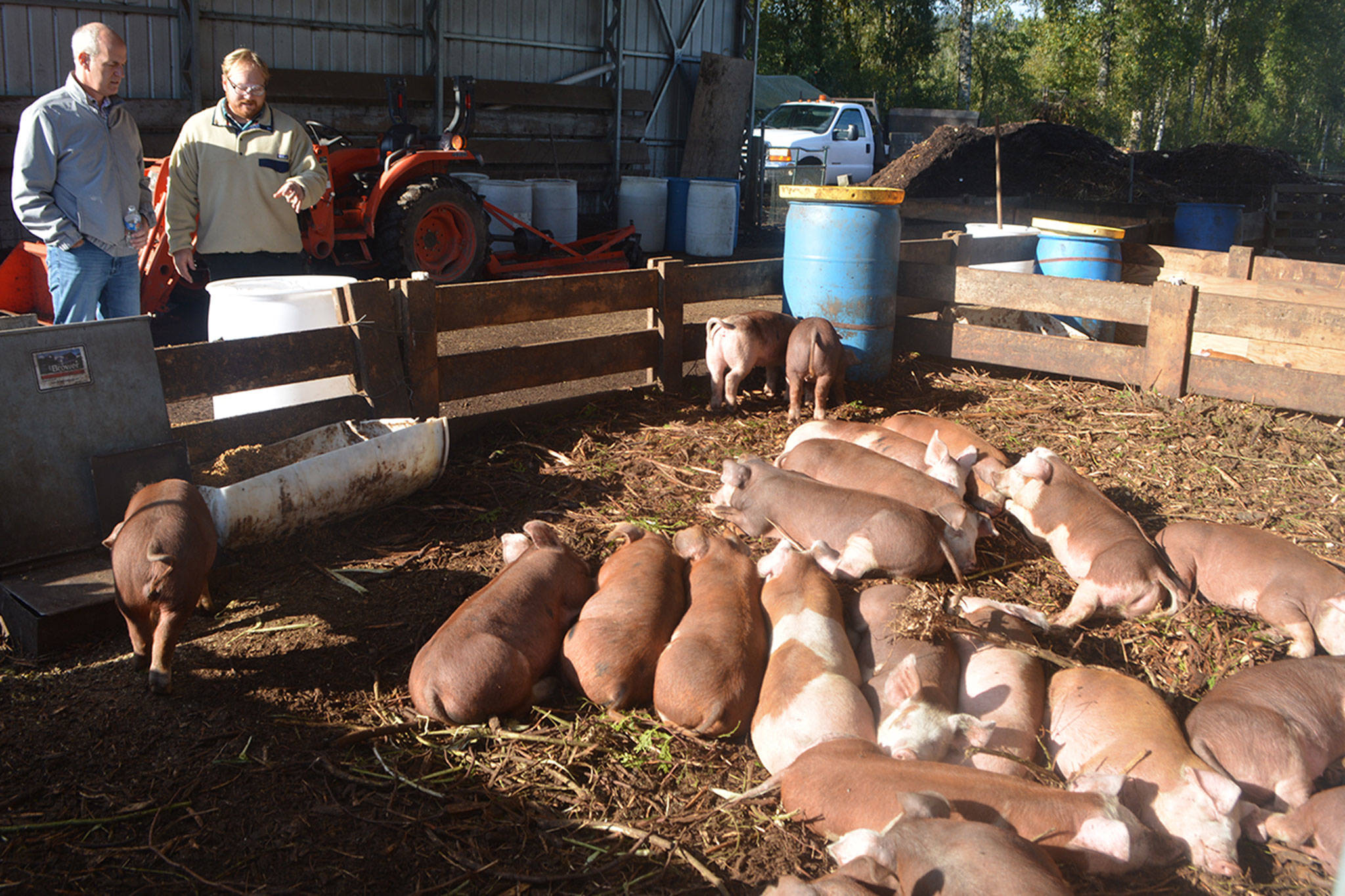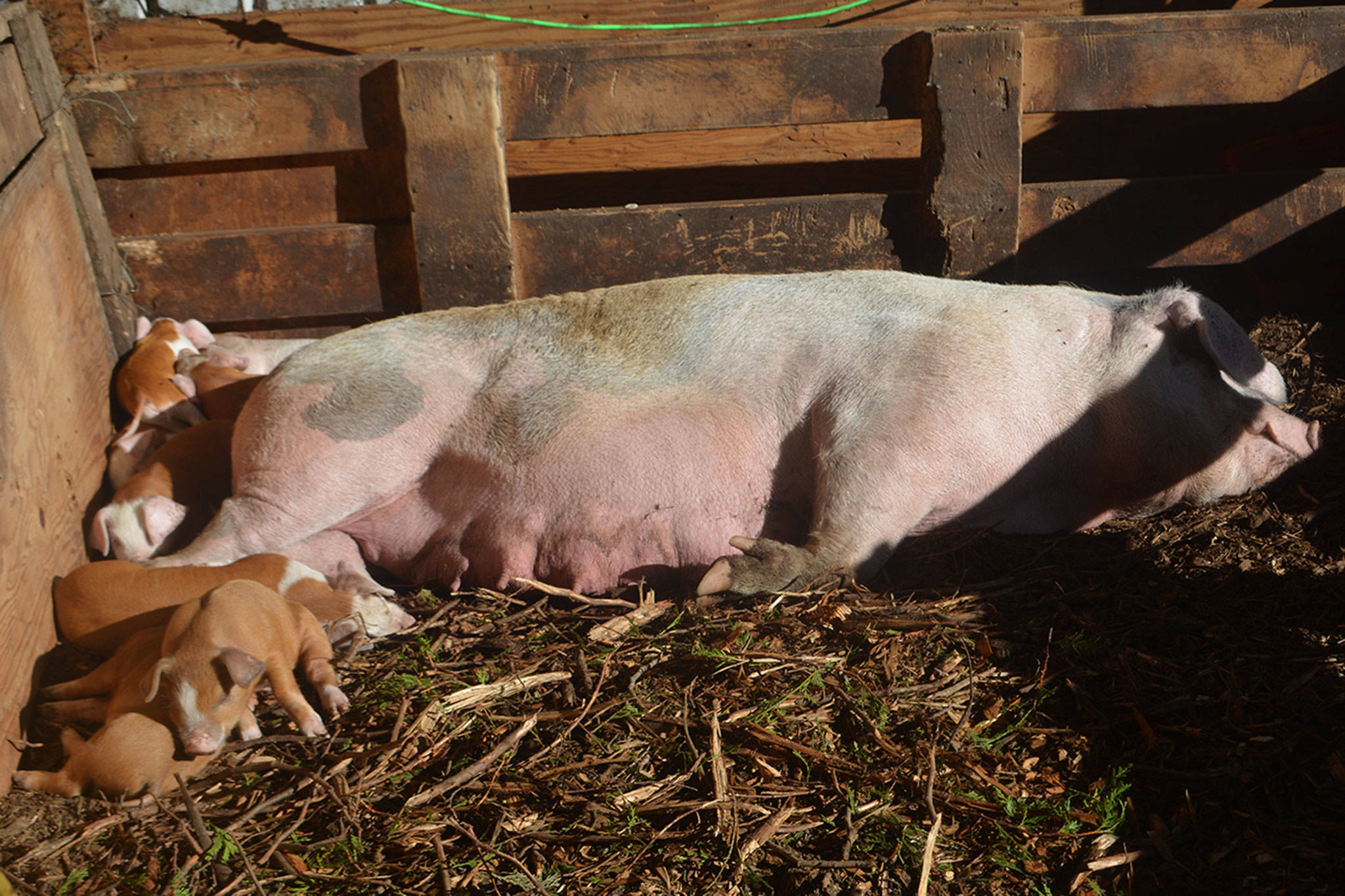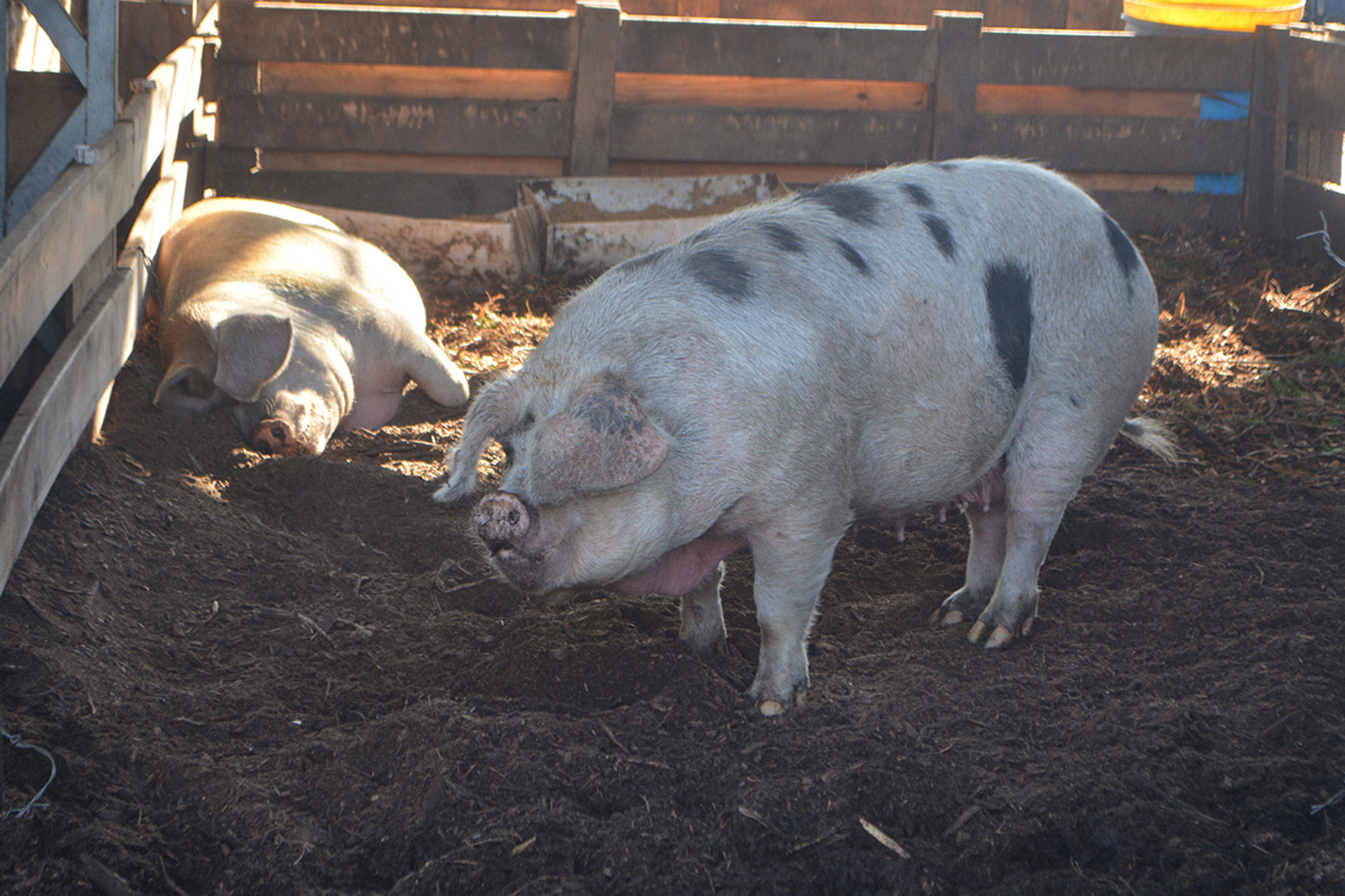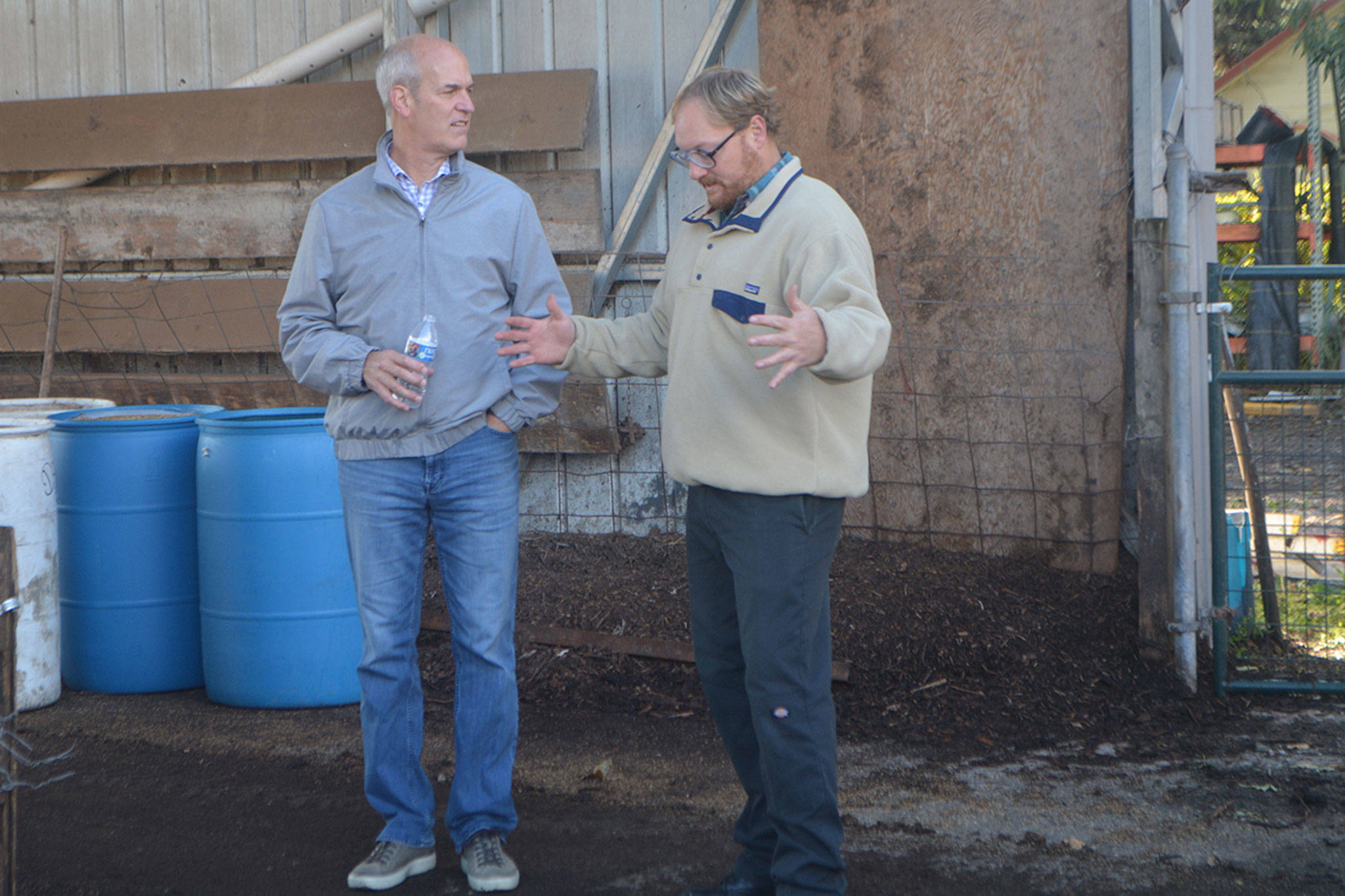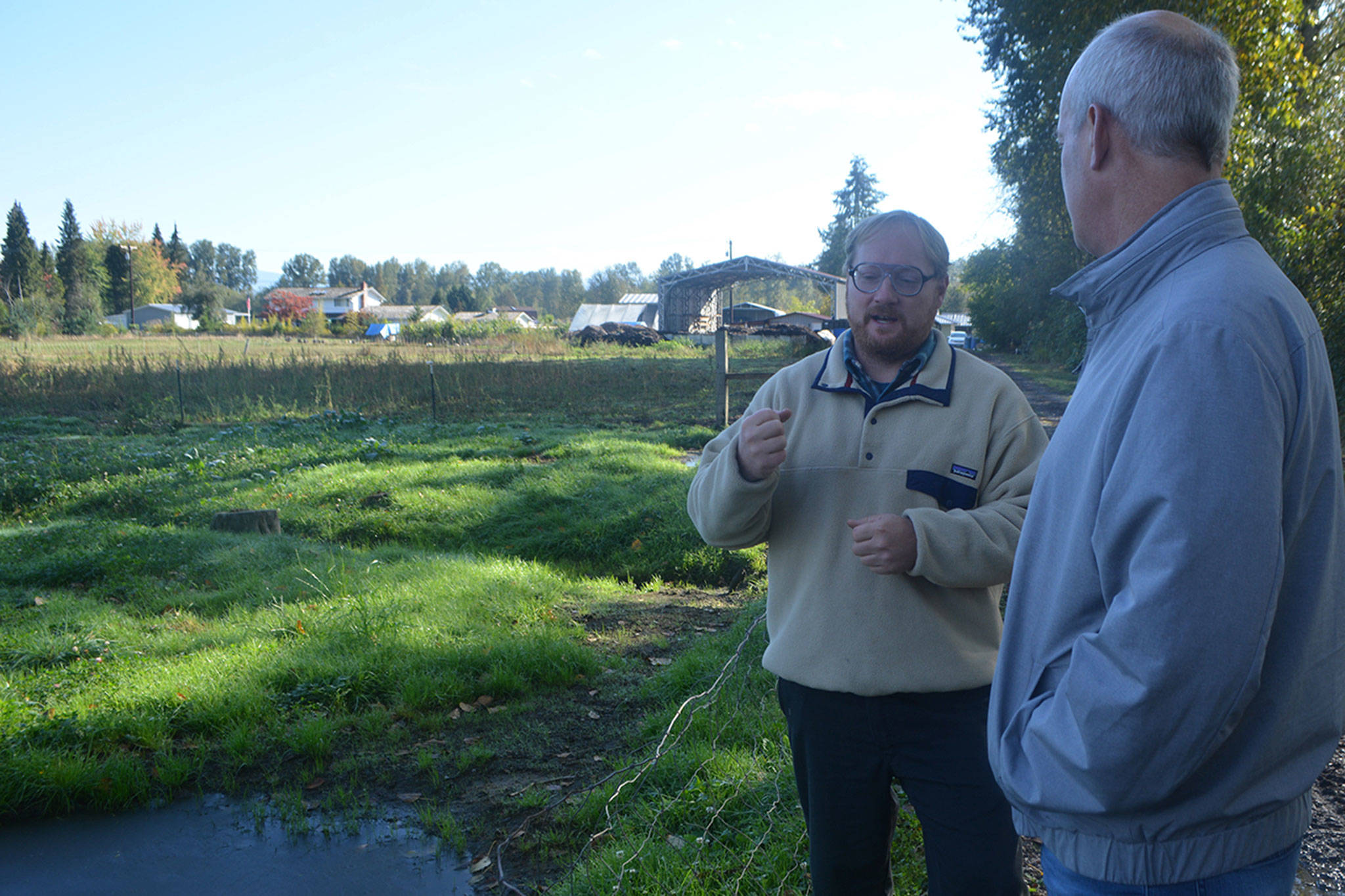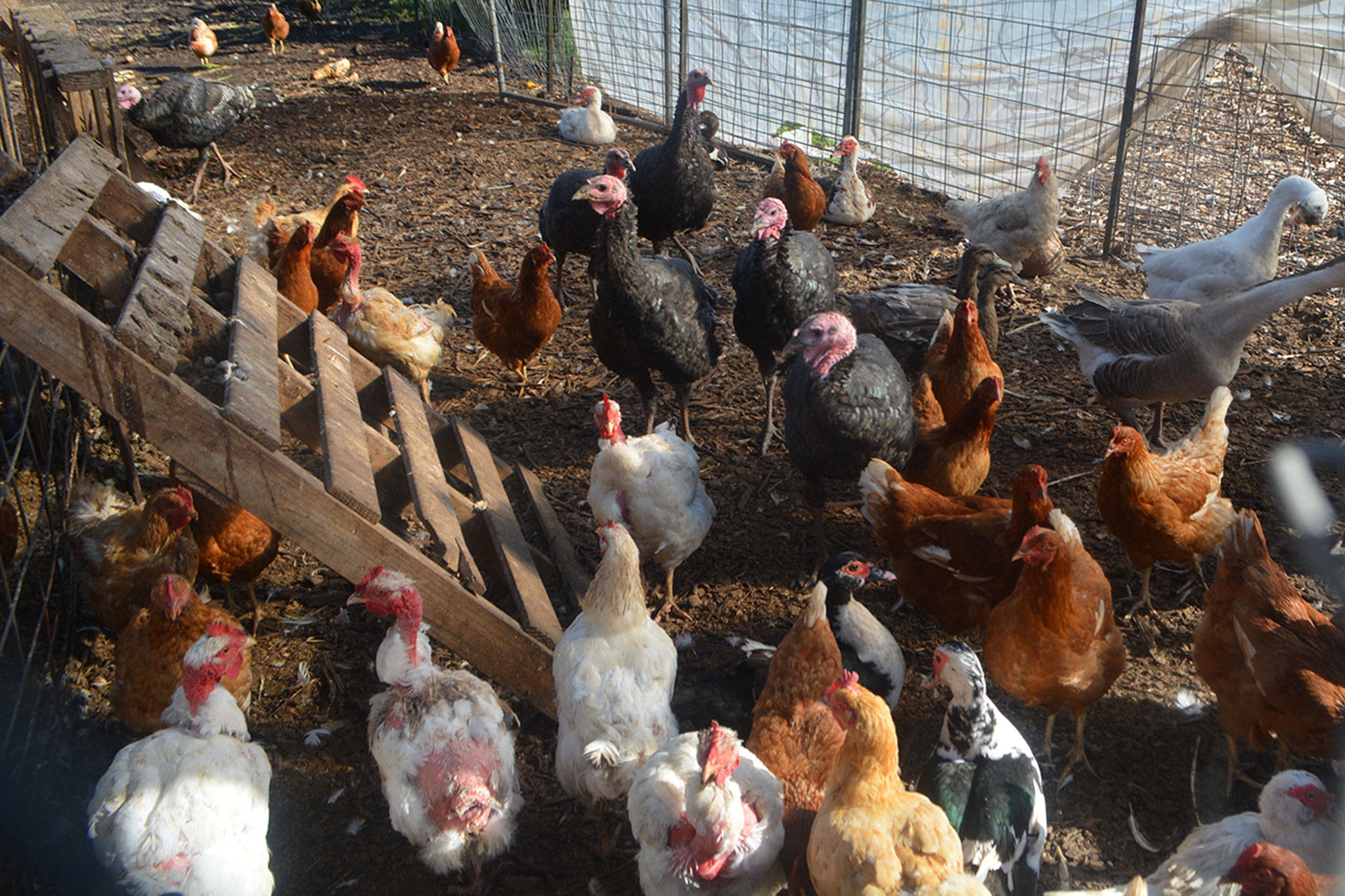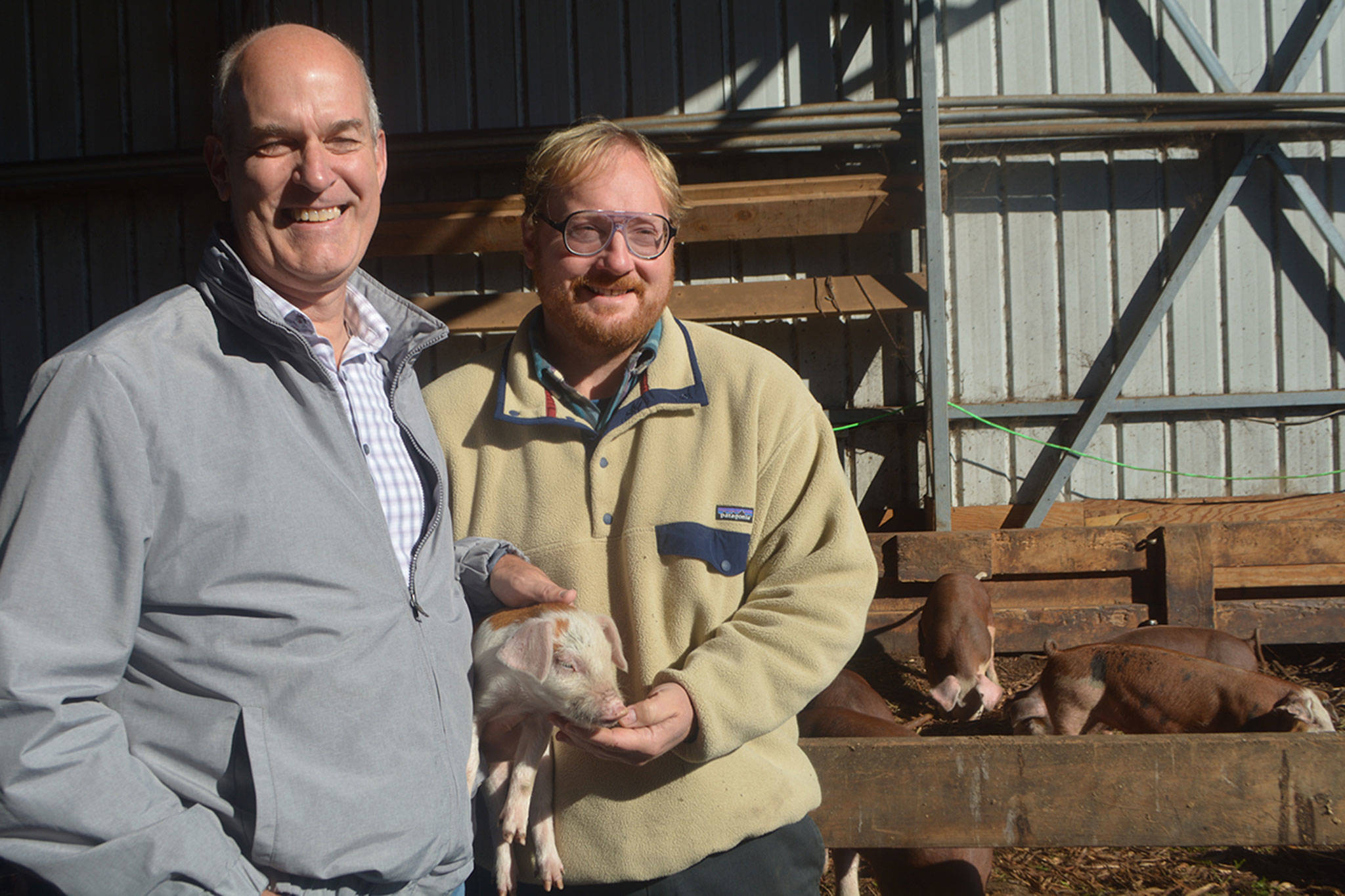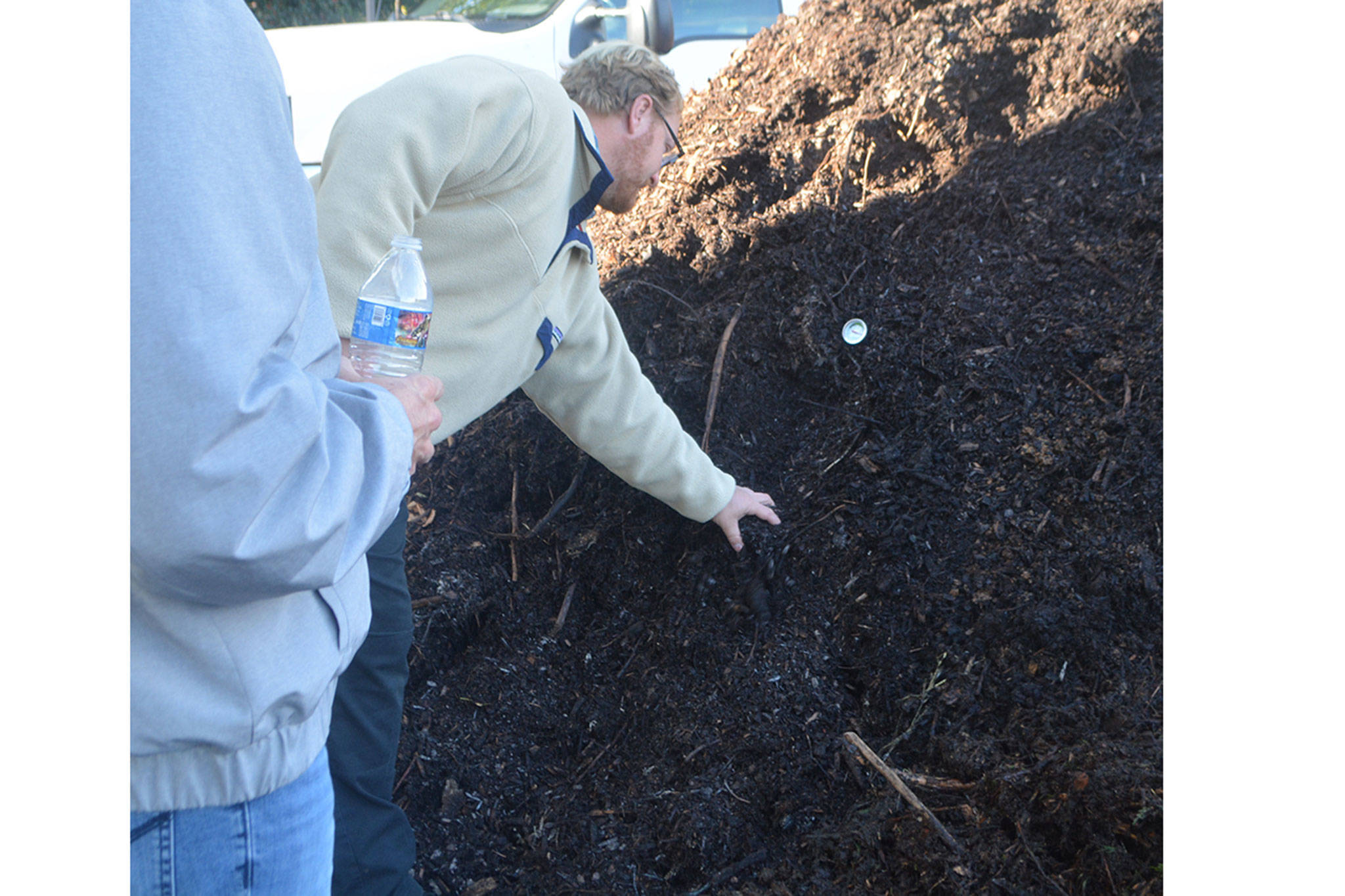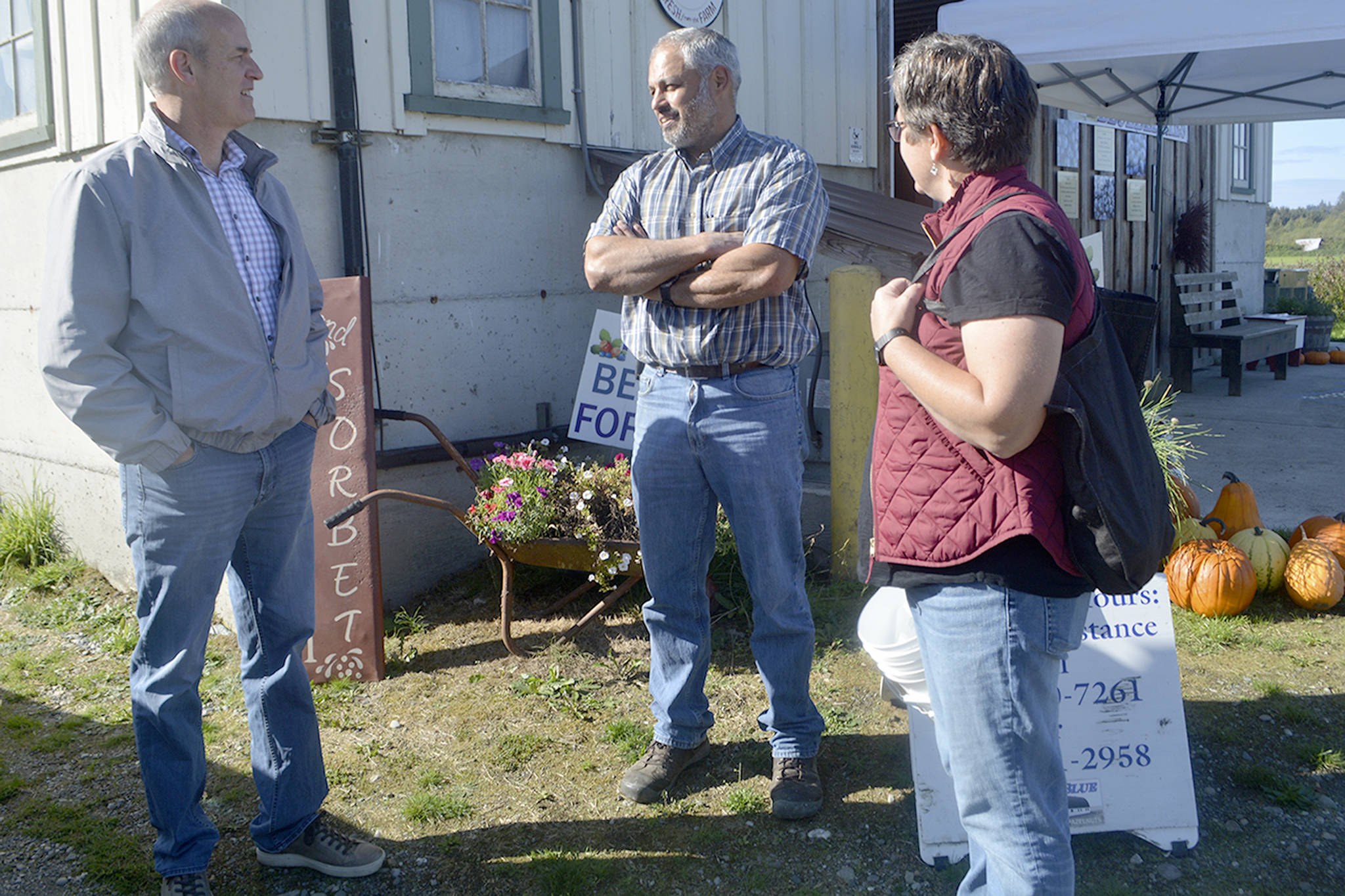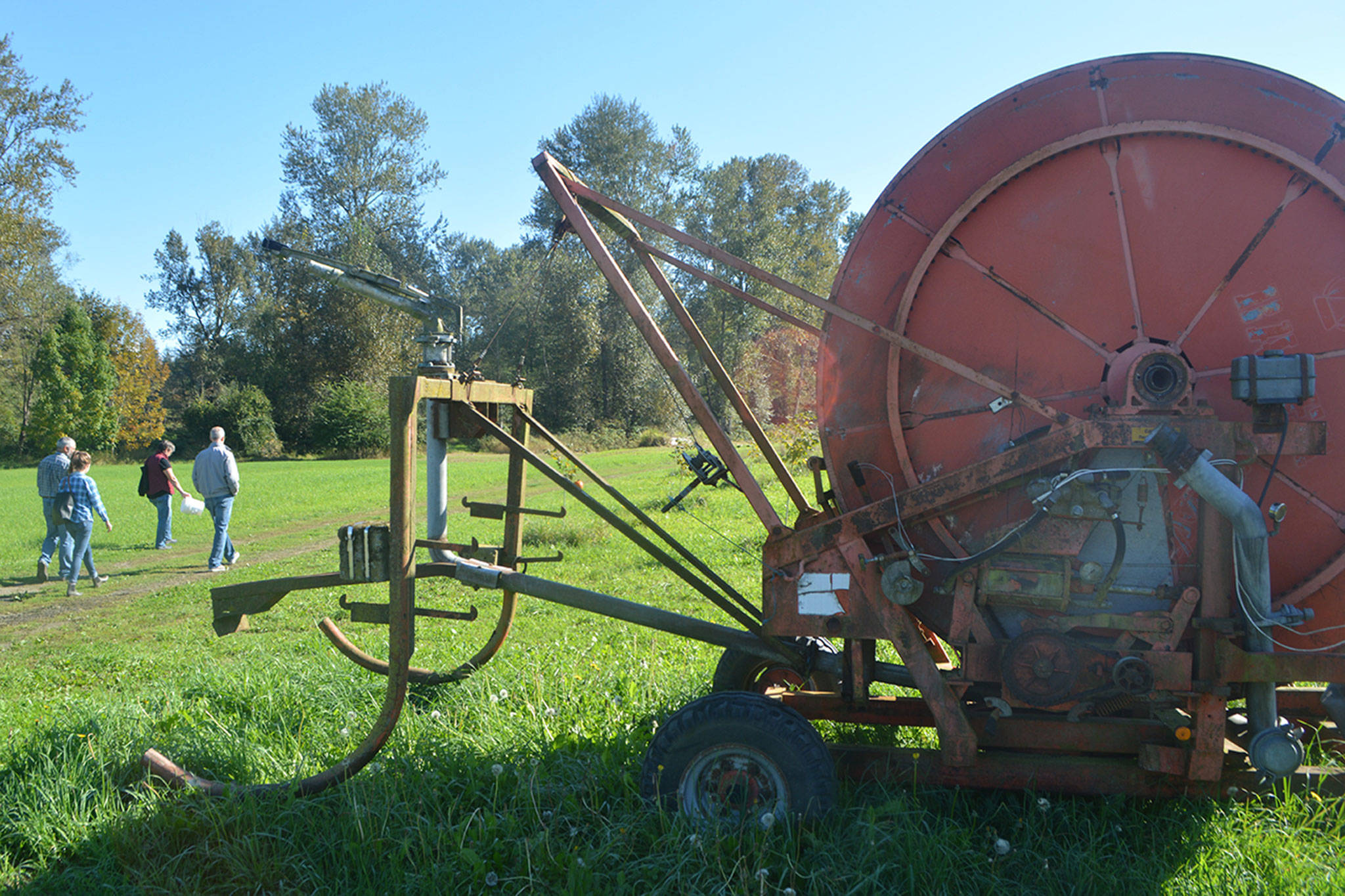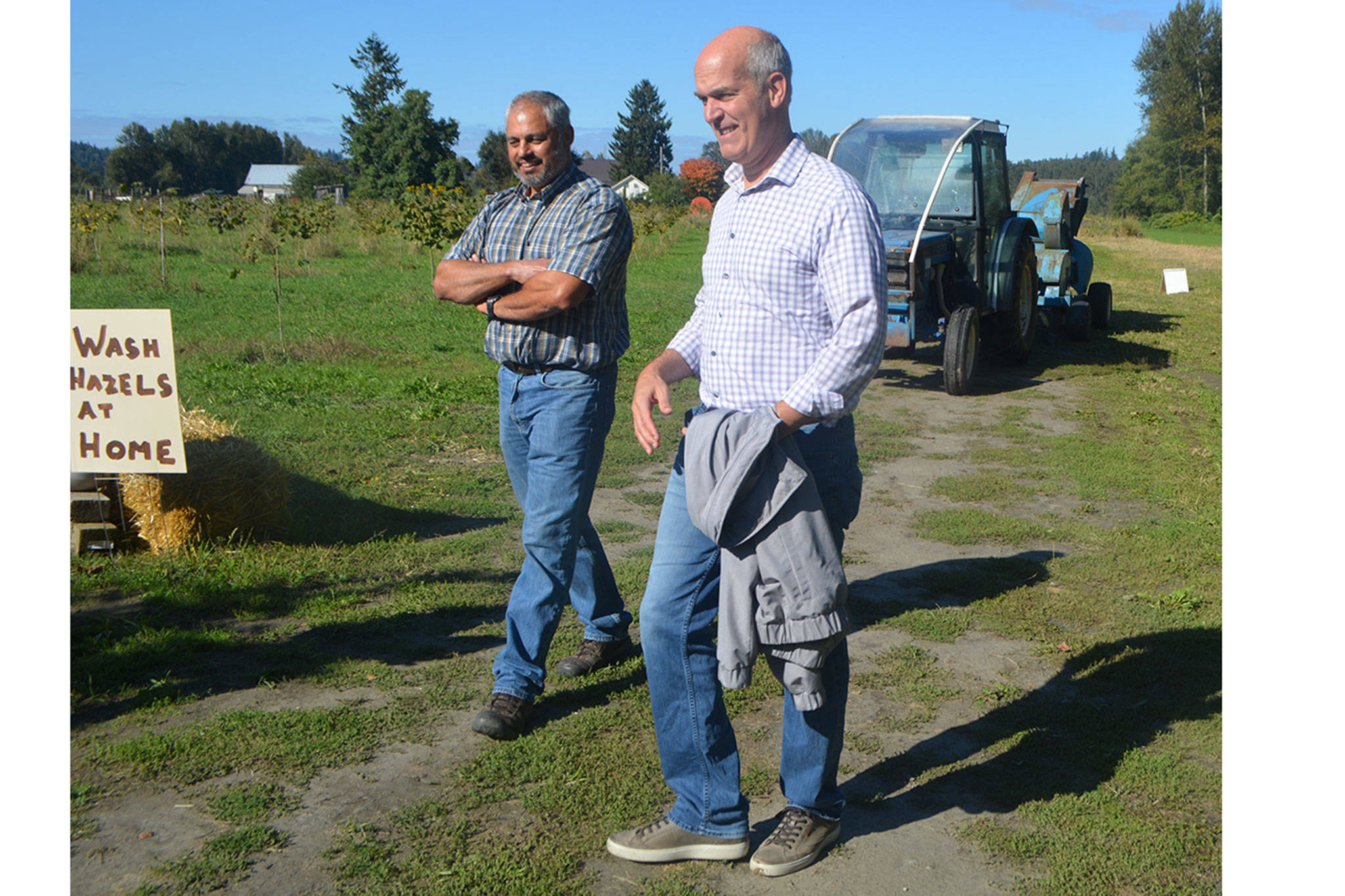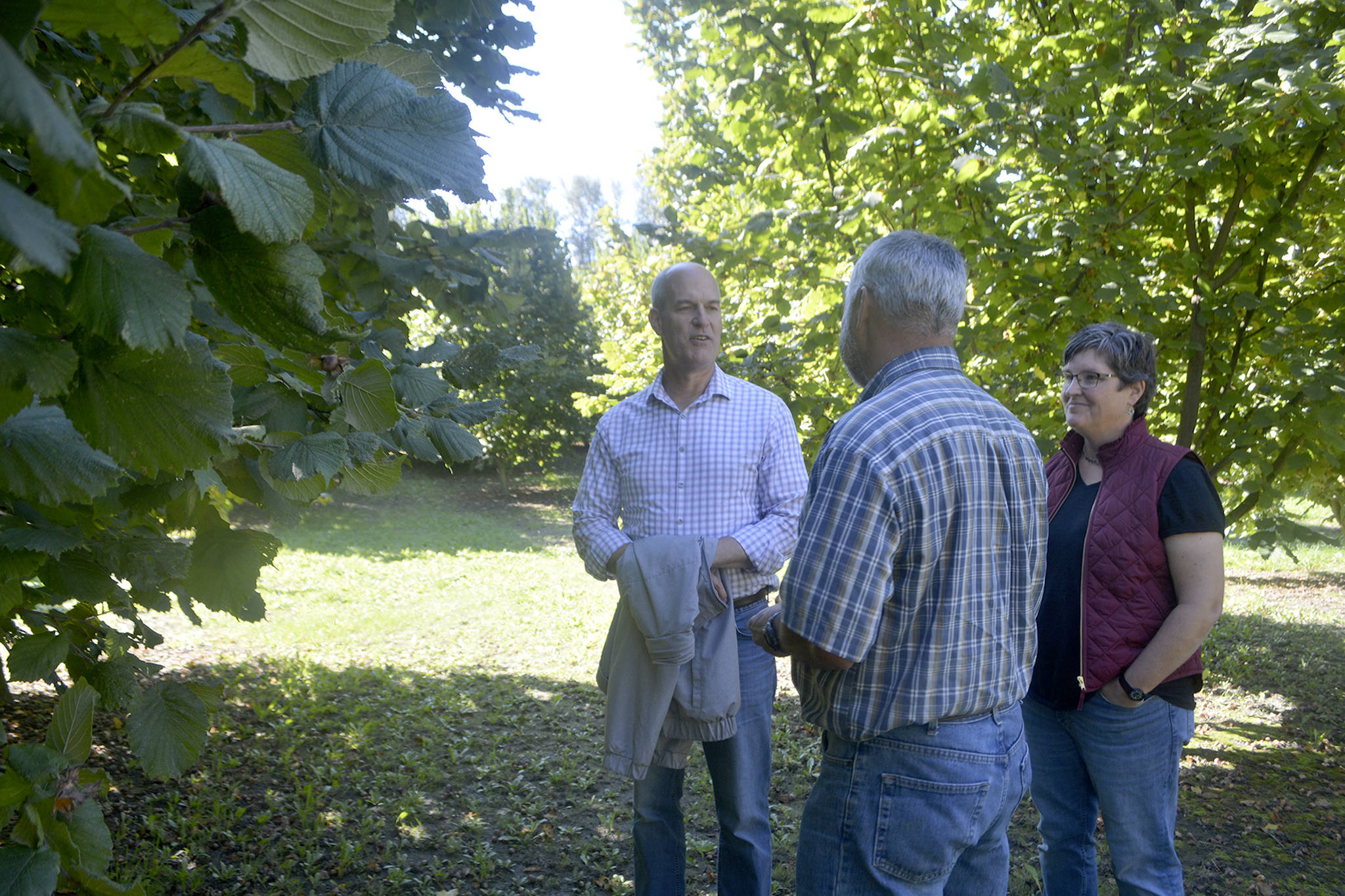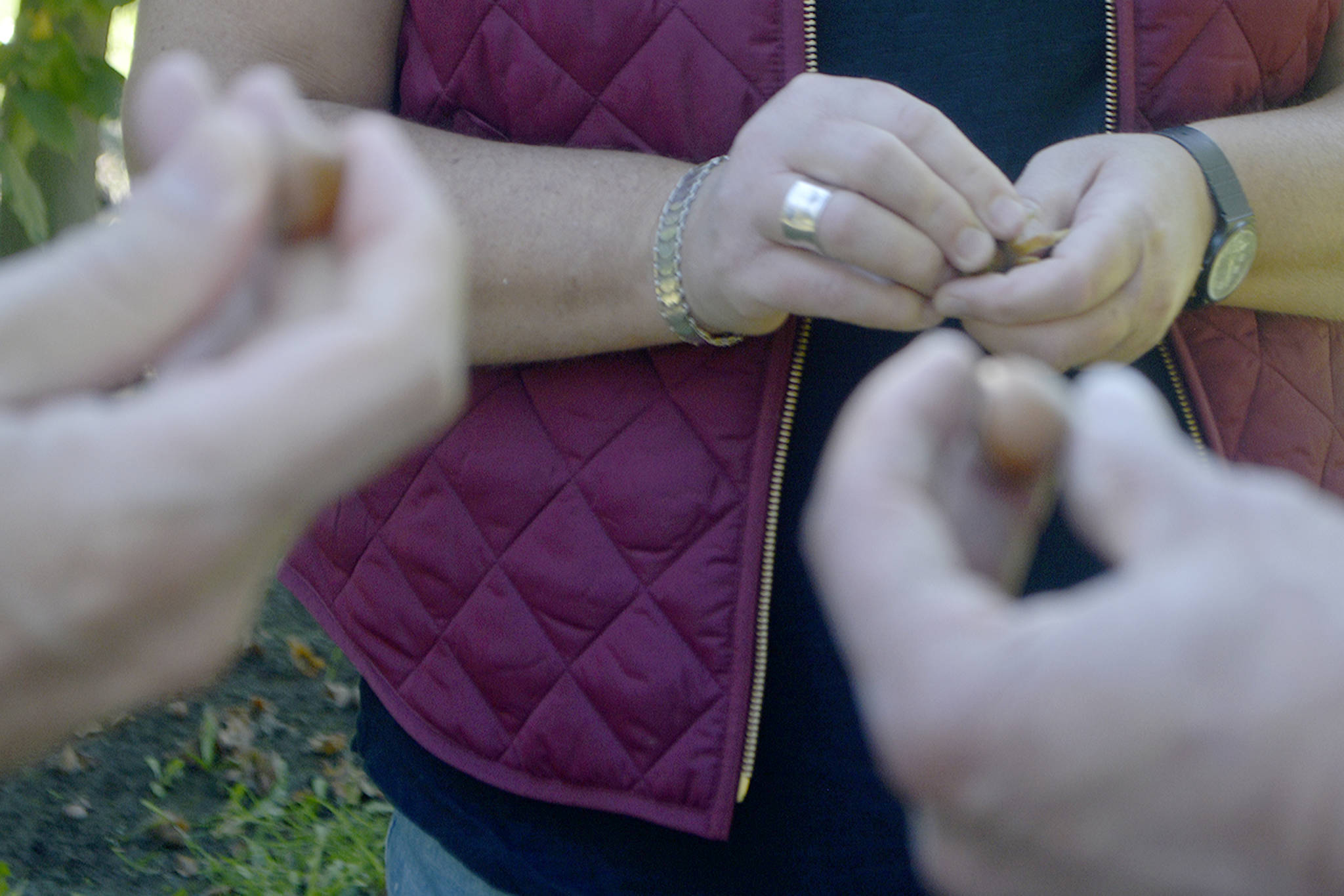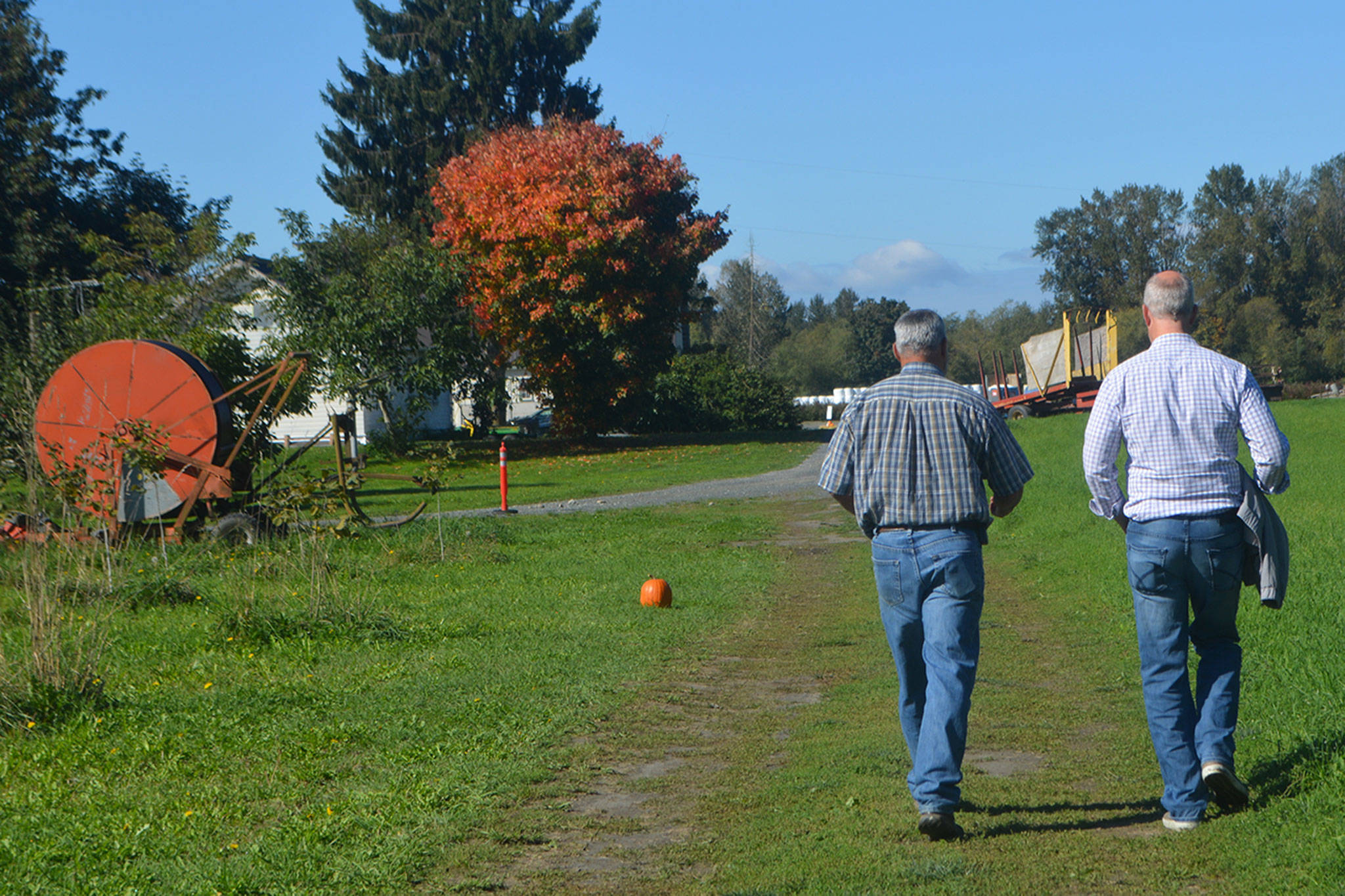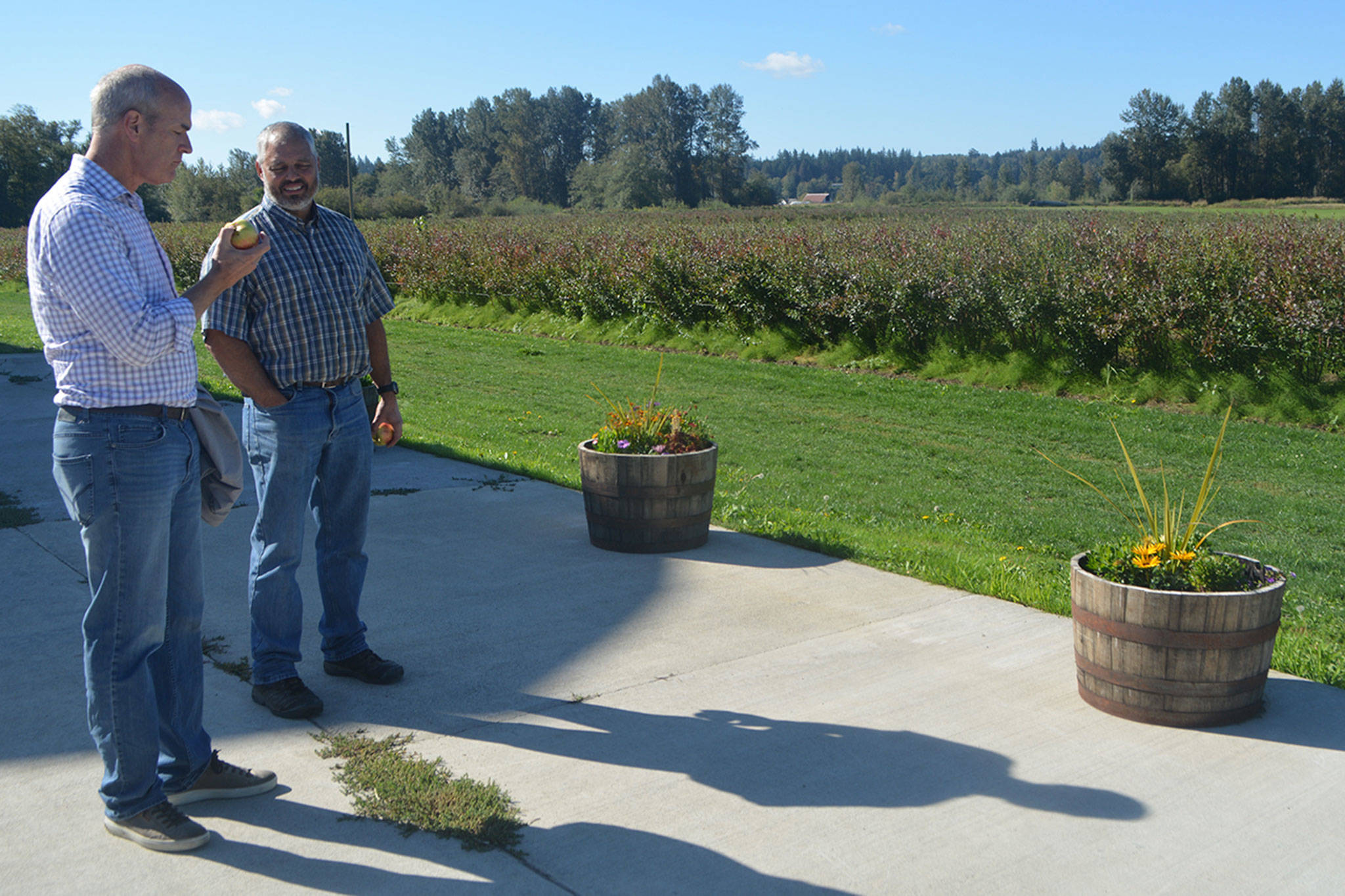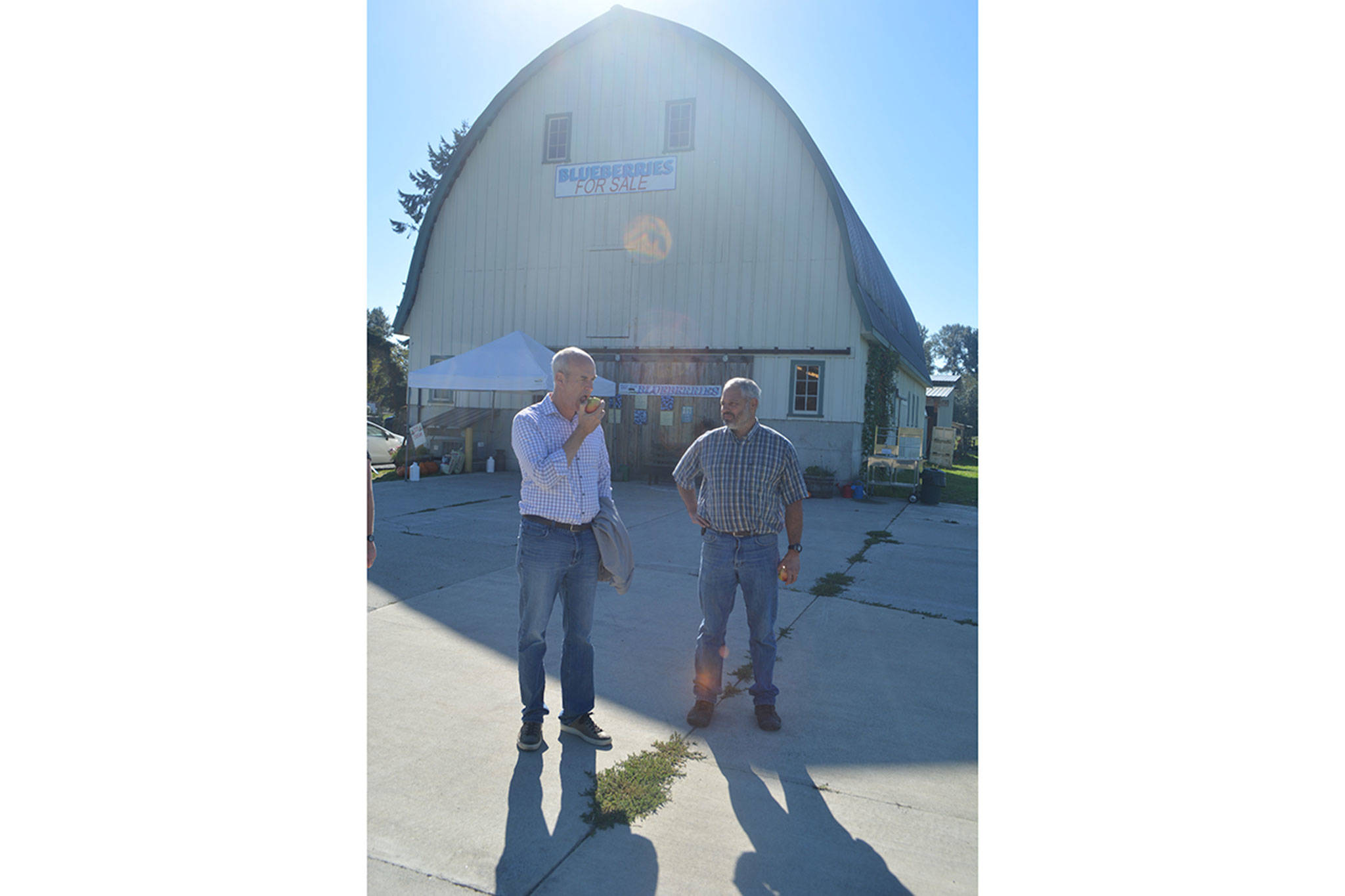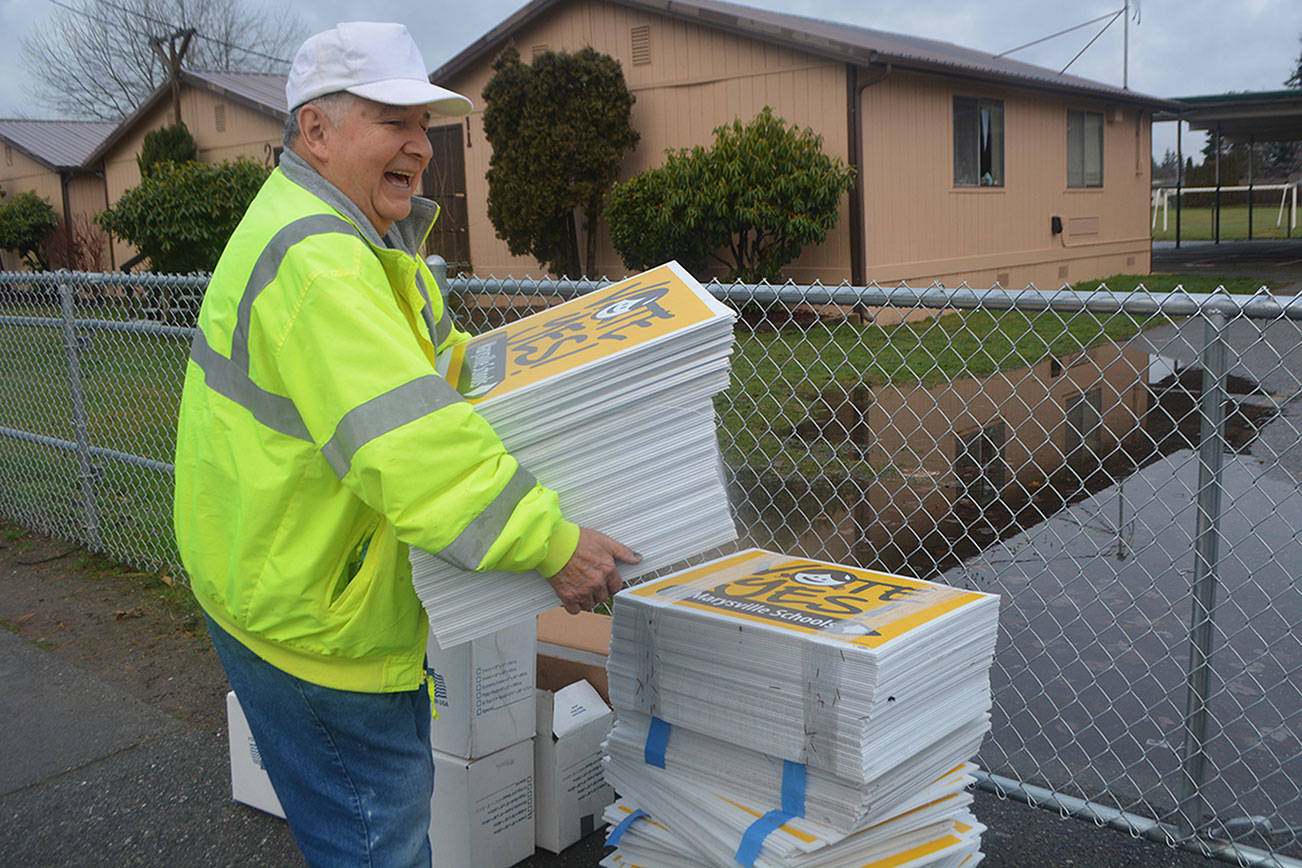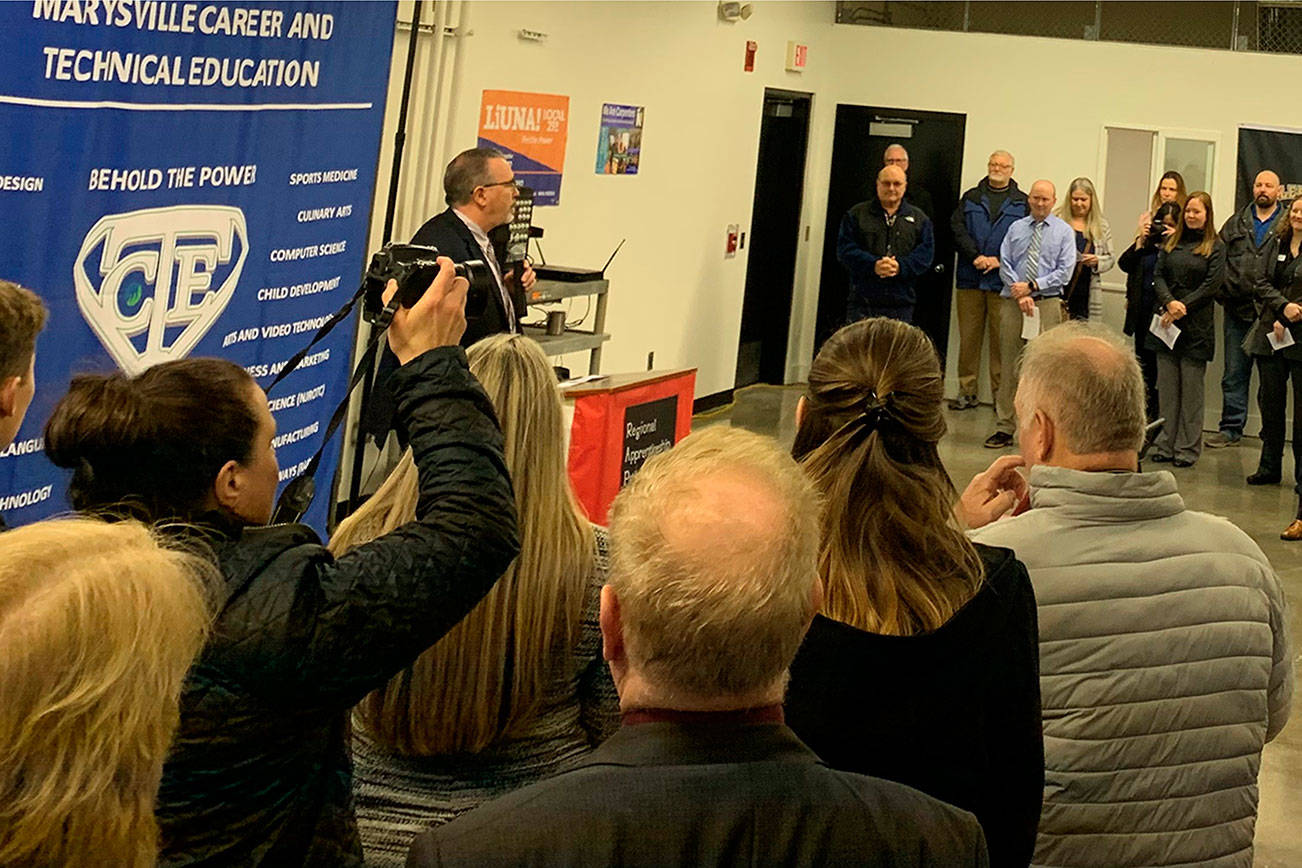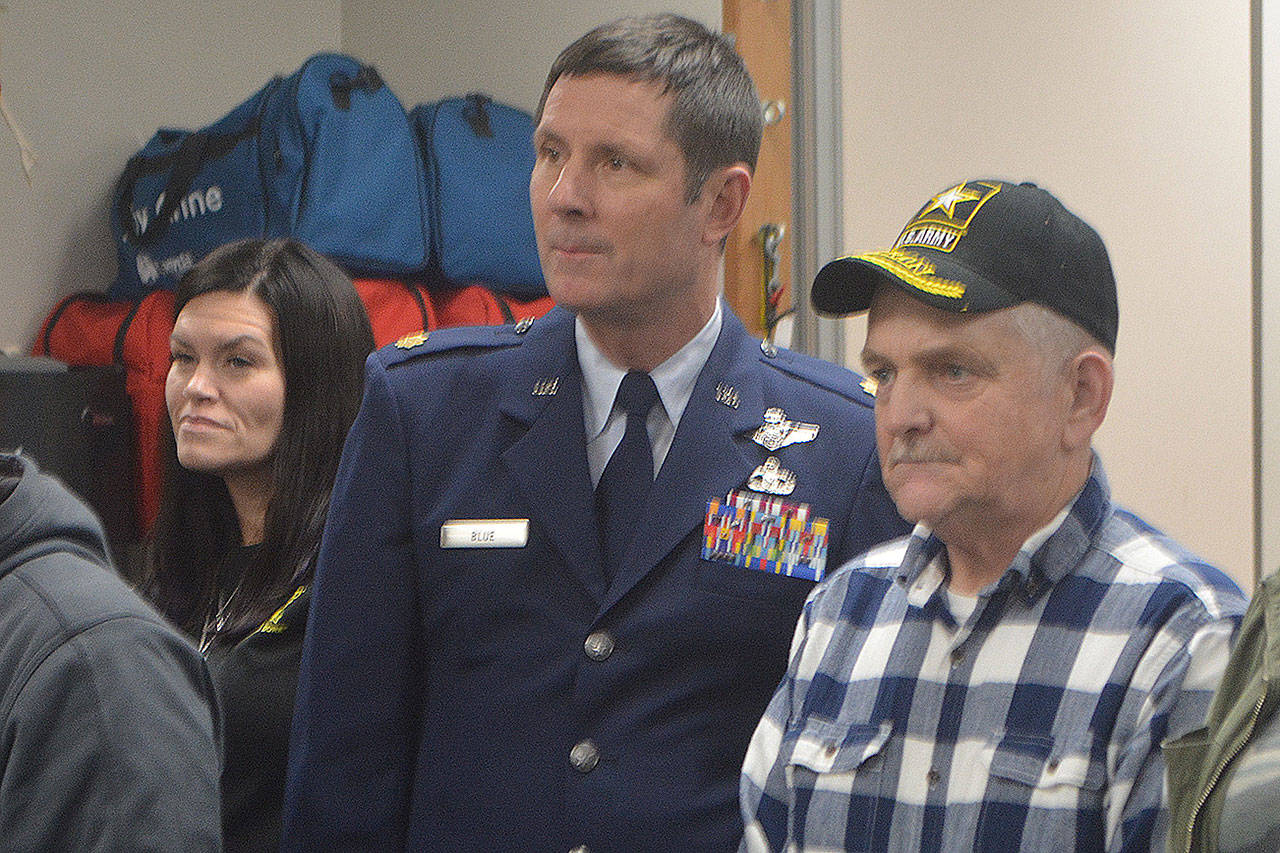MARYSVILLE – They may be small local farmers, but their issues are worldly – tariffs and the trade war.
Luke Conyac of Hogstad Farm, along with Spencer and Karen Fuentes of Hazel Blue Acres, spoke with Congressman Rick Larsen this week about their operations. They all said the trade war and tariffs were making it even harder for small farmers to make a living.
Conyac said he gets no government subsidies. “The big guys get a little more piece of the puzzle,” he said.
Conyac grew up on a Kansas farm, but became a lawyer in Seattle. He started Hogstad eight years ago. “I wanted to get back to my roots,” he said.
He breeds and raises Heritage pigs on the 10 acres. He also has chickens, eggs, geese, turkeys, a few cattle and an organic vegetable garden. Many of his products are sold at Farmers Markets and to restaurants.
He mostly works the farm himself, but also gets help from WWOOF, World Wide Opportunities on Organic Farms. People around the world volunteer to help in exchange for food and housing. “They can learn model pasture rotation and grazing” at my farm, Conyac said. “And I learn their culture from them.”
They can also learn to raise pigs a better way. “It’s a more humane way of raising them,” he said.
His pigs are not confined. They are free to roam the property. They eat barley and other quality foodstuffs. “They’re notoriously late sleepers. They lay in the sun. There’s no stress,” he said.
Conyac added for some folks in the north Seattle area that’s very important to them.
He also raises pigs a little bit longer than most, leading to “far more marbling” in the meat. No Genetically Modified Organisms are used anywhere on the farm. “It’s flavorful. It’s better, healthy meat,” he said. “It’s a premium product. It costs more to raise pigs this way.”
He said it’s not that way on the big farms. He said the way some pigs are treated should be outlawed.
Conyac “utilizes everything” at the farm. He composts everything, locking the nutrients in, then putting it on his garden. He slaughters his hogs and shows others how to do it. Surprisingly, many women are interested in that. “I didn’t see that coming,” he admitted.
He uses a .22 rifle shot to the forehead, then cuts an artery in their neck. “You need to do that to get a good bleed out,” he said. “That’s the humane way to do it. The other pigs don’t care at all.”
Referring to how intelligent pigs are known to be, Larsen quipped, “They can write poetry, but don’t understand it.”
As for marketing what he does, Conyac said he is banding with other pig farmers to try to increase their power. “It’s a changing game, for sure,” he said.
As for how Larsen and his colleagues could help small farmers, Conyac admitted that would be difficult.
“They’d have to undo fifty years of regulations,” he said, adding small farmers get the least attention from government. If they could go back in time, more people would be able to work small farms, he said.
Conyac said Farm Bill reauthorization needs to pass. “There’s a lot of fat for the big guys,” but it would also help small farmers, he said.
Cost sharing also is important for farmers, as is SNAP, the program that helps the poor by more at Farmers Markets.
Away from agriculture, Conyac asked for Larsen to work for single-payer health care. “I can’t buy insurance,” he said.
As for the visit to the Hogstad Farm, Larsen quipped something about “Pork-barrel politics.”
Meanwhile, the Hazel Blue Acres is known mostly for its organic blueberries, but it also sells hay, wheat, barley and hazelnuts.
Spencer Fuentes encouraged Larsen to fight the trade war. “There are winners and losers” just like in any war, he said of the regulations. “We’re at the mercy of the general market.”
Fuentes said many of their hazelnuts go to China so the tariffs are having an effect.
He said food safety and labor are key issues for farmers like him. There is a food safety risk when nuts are picked up off the ground, even though there are signs everywhere telling u-pickers to wash their hands and the nuts.
Some people like to eat the nuts as they are off the tree. Without roasting they taste like carrots, Fuentes said.
He added customers like hazelnuts that taste good and stay whole after cracking. He said the company that makes Nutella loves hazelnuts. “In Europe they eat it like peanut butter” here, he said.
Karen Fuentes said kids as young as 12 can get a permit to work on the farm, but about a four-hour shift is the most they can handle.
“You didn’t have to have a youth permit in my day,” Larsen quipped again.
